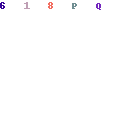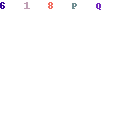I think I was about ten years old when I learned one of the more important lessons of my young writing career. I’d written my first short story (about the Easter Bunny…and candy) at age six and my first play was penned and performed (by an entire cast: thank you kind nuns of St. Joseph’s School) by age seven, but I had not yet attempted any non-fiction work. In fact, I doubt I realized there was such a thing.
In fourth grade, however, all that changed. We had to write a paper on a planet or animal or country or something or other which we had been somehow (randomly? Or perhaps prescribed in accordance with the first letter of our name – that was often a lame-o for me and how I know all about the element Vanadium) assigned. Without further adieu, the whole class was drug to the library and taught about the tome of wisdom known as the encyclopedia. Woe to the kids who were assigned topics contained in the same volume (Peru, penguins and Pluto…)
I have been working on this post for a couple days now and have hence become convinced that I had to write about lemurs.
So anyway, if your parents had properly prepared you, you hauled out a fresh pack of 3×5 cards and started making notes in some order that supposedly would make later sense. You were to track a thought per card and maybe number them and I don’t know what else. I can tell you that in the end, there were a lot of cards and it was a big old mess. 3×5 cards are a terrible invention: equally sucky for speech-giving. Have you ever dropped an entire pile of 3×5 cards upon which a speech is written? NOT GOOD.

It's true. I'm really not realistic at all. In fact, I'm rather absurdly positive about most things.
So like I was saying, we were being taught to write research papers, and it was a complex and tedious process. Then, the most important information of all was revealed (and being the eager to please child that I was, words like ‘THE MOST IMPORTANT’ were taken quite seriously): you were not to copy the information word-for-word from the encyclopedia as you would later be unable to tell whether they were your own notes or observations or thoughts or not. If they were, in fact, the exact phraseology contained within the reference book, you were doing this new bad thing – a kind of cheating, only this kind was a crime (!) – called plaigarism.
I’d been to Catholic school and confession and knew about lying and stealing and coveting thy neighbor’s wife. I didn’t realize that quoting someone without paying due reference was on the list too, but clearly my brother was going to Hell.

I will say, those that give me the most crap about my positive outlook are also the first to freak out if I get negative. Their usual cry? "No! Don't talk like that! I need you to encourage me!" Go figure...
On the other hand, I remember the teacher explained that so long as every sixth word was different, it wasn’t plaigarism. I suspect that’s total bullshit, but back then, I followed that rule like gospel. And why not? It was evidently plain that the people writing the encyclopedia had already said whatever there was to say as superlatively and flawlessly as it would ever be said. It seemed a damn shame to try to improve upon perfection…minus altering the sixth word out of necessity, of course.
I even struggled with this occasionaly while writing a graduate thesis, although by then I knew that if push came to shove, I could at least quote and attribute the source…so long as the thing didn’t become page after page of quotes (great as though they might have been). Thesis review committees like to see the occasional evidence of actual gray matter.
Anyway, the long-winded point here is that I have been reading this book by an author I already mentioned a couple months ago – Eric Maisel – and I’ve been so blown away by the precise beauty and exactitude and, again, perfection of what he had to say about the art of writing that I could see no choice but to plaigarize or just go ahead and copiously quote him here, but I wanted to leave you at least a little something from me. Thus, a boring story about my childhood introduction to plagiarism. Maybe next time we can talk about the difficulty I had telling the phrases “I did it by accident” and “I did it on purpose” apart (and the resulting panic attack that confusion caused.)
Until then, enjoy some insight from Eric Maisel, courtesy of DEEP WRITING and slightly paraphrased where it would be confusing not to:
“Deep writing is work meant to mean and not just entertain, garner applause, or demonstate one’s skills. Each deep writer had a dream, a problem to solve, a truth to tell, a moral imperative, a holy quest, all mixed up together.
I haven’t yet called deep writing spiritual work. I’m rather loath to do so now. First of all, I have no idea what ‘spiritual’ means. I see deep writing as supremely human work, maybe the human work, and to call it spiritual adds nothing to its important from my point of view. But there is an important ‘but.’ I do believe that who we are, why we’re here, what the universe is all about are utter mysteries, mysteries that science can’t unravel and theology fears. If ‘spiritual’ means something like living this mystery – living in relation to this mystery and in awareness of this mystery – rather than living ordinarily, then I feel more comfortable calling deep writing spiritual work. In fact, I’m happy to call it that.”
Perfect, no?
Now maybe this won’t impact you as it has me, and in the net this book hasn’t really been that necessary (as I’m luckily not plagued by writer’s block or self-doubt…anymore. Go back in a time machine any time before three years ago, and we’d be having a different conversation.)
Anyway, I think what resonates with me is that this is so much how I work. Despite a regular barrage of “you should write f*cked up sh@t. That’s what people want.” or “the masses want sex and violence and magic and vampires” or reality TV or Saw IV or a hundred other things that make me cringe, it doesn’t work that way for me. It’s not that I can’t come up with ideas – as a nightmare ridden person (my earliest memories are nightmares) I have lots of scary fodder.
I could write horror or schlock or violence or smut, but I can’t. Some part of me refuses to add more negativity to the world. And, in fact, although I have no real message to preach, there is a underlying message to everything I do. I’m not saying I’m Dosteovsky, but I do have my own little missive flowing through the veins of everything I write. It goes something like “life is short: strive to be happy.”
And so long as that’s there, I’m happy. True, my work may not ever sell millions of copies or be on any bestseller list, but then again, it just may. Nonetheless, what I have to say is my truth and comes from deep within me. And obviously I’m a huge goody-two-shoes Pollyanna.
So be it.
If you ask me, the world has a severe shortage of us anyway.
